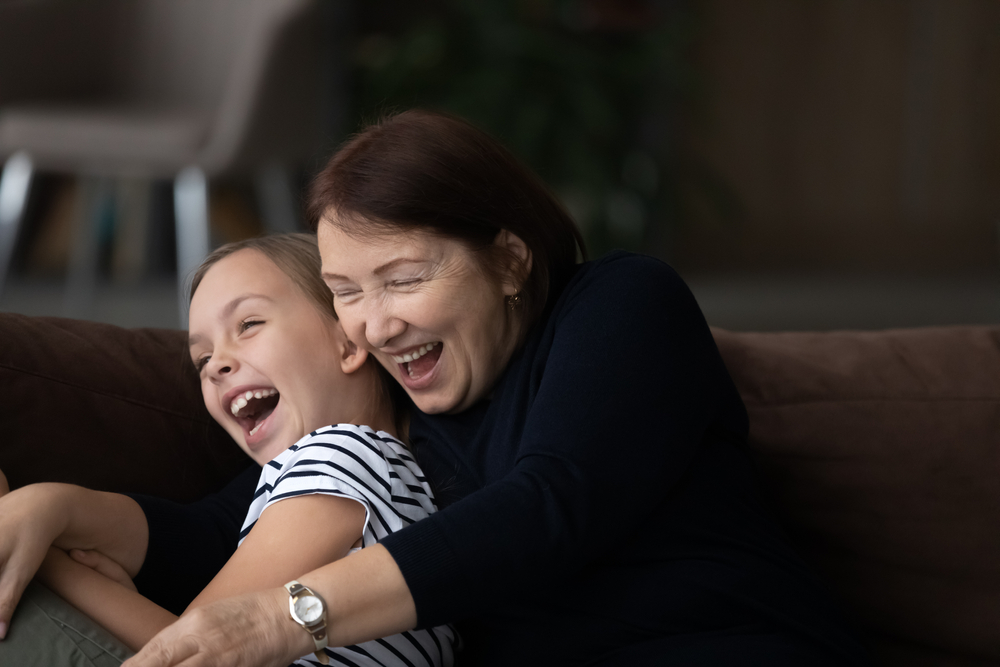For children in care, there can often be a variety of mixed emotions. However, it is no secret that foster care is beneficial for them in so many ways. Foster carers perform vital roles in a wider societal context and have a significant part to play in changing lives and creating opportunities for safety, healing, and forward movement. Here are seven benefits of foster care for children that are not talked about enough.

fizkes Shutterstock
A Safe Base Is Priceless
Having somewhere to live where you feel safe is a basic right for every human being. Yet not everyone has this. Children in care often come into the system because their home is not a safe space for them. There may be neglect, substance abuse or any manner of dangerous activity to move away from that brought them to your door. A child with a safe base can explore healthy attachments and relationships in a supportive environment and learn to trust that they have somewhere to come back to that will keep them secure.
Specialist Support Where It’s Needed Most
There are many types of foster care. Some, like therapeutic fostering, specialise in specific and severe trauma. Others are short-term interim arrangements, or even respite care to provide a different type of support. The point is, there is always specialist care somewhere if it is needed. For children with disabilities, for instance, there will be a carer out there ready to open their home. This is an amazing thing, and agencies all over the country take different needs into account all of the time. A thorough profile is always created, and where there are specialist needs flagged, they are always catered for in some capacity or another.
Healthy Relationship Models
The importance of intuitive, healthy attachment should never be underestimated. It is the foundation of building healthy relationships in adult life and will be the whole anchor point for sustaining these relationships too. Attachment is so important, and it can sometimes be difficult to navigate with children in care. Foster carers can begin the slow process of reaffirming positive attachment models and bringing positive habits to relationship building.
Access to Education
Education is obviously a key part of anyone’s childhood. It plays a big role in facilitating core skills and enabling young people to access employment later in life. However, there are often clear barriers to education for foster children for numerous reasons. Whether that is prolonged periods of absence, or a parent who has not promoted learning, the school is not always aware of how best to support the children they are supposed to be teaching. Foster carers can step in here in a massive way and be the strength that is needed to facilitate an educational journey.
Financial Support
When a child leaves foster care, which can sometimes be at the age of 16, they will have access to financial support as well. This could be the difference between them getting set up on their own two feet and not knowing where to turn. Financial support is essential for all young adults learning about how to manage their own independence. Foster carers are paid an allowance, but foster children will have access to their own money at a certain point too.
Therapy Avenues
Therapy is a common way of accessing a healing journey for children in care. Whether there is advanced trauma to work through or the child was taken into care at a young age and therefore the harm has been minimised, therapeutic avenues are more accessible when a child is in a foster care setting.
The Value of Having an Advocate on Your Team
Often, children in care have yet to find a supportive adult on their team. This can look like many different things — for instance, in an educative setting. School engagement is often a hot topic for foster carers because it is one of the first things to break down for children who might be struggling. So, having someone available who understands the system and what you need will be transformative and the difference between accessing vital education and missing out!
The benefits of foster care go above and beyond. It is a rewarding life choice for the adults who step up and take the lead, but for the children, it can be absolutely life changing. Access to education, a voice to speak alongside them, and a place to feel safe are three vital elements to a healthy, functional adult.

